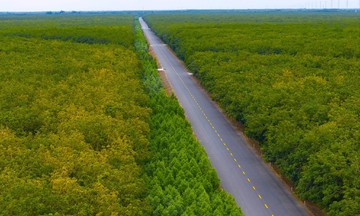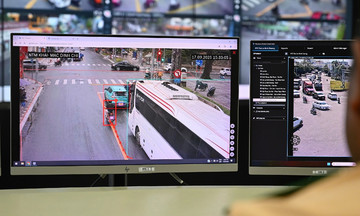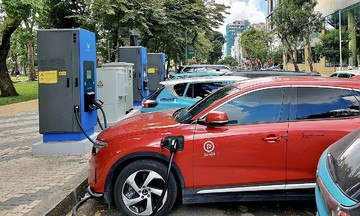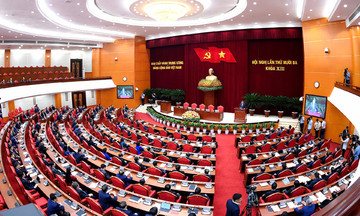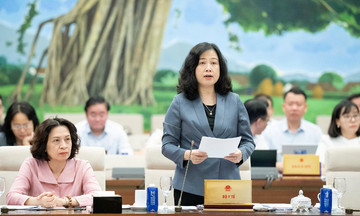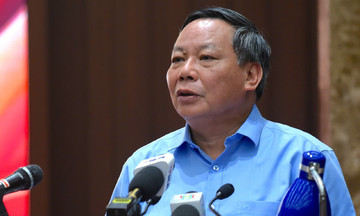On the afternoon of 18/9, the Can Tho City People's Committee (CPC) met with the Japan International Cooperation Agency (JICA) to discuss two transport projects approved by the Prime Minister in June. The projects aim to complete the national and inter-provincial highway networks, meet transportation demands, expand urban development space, and adapt to climate change. The two projects will be implemented from 2025 to 2030.
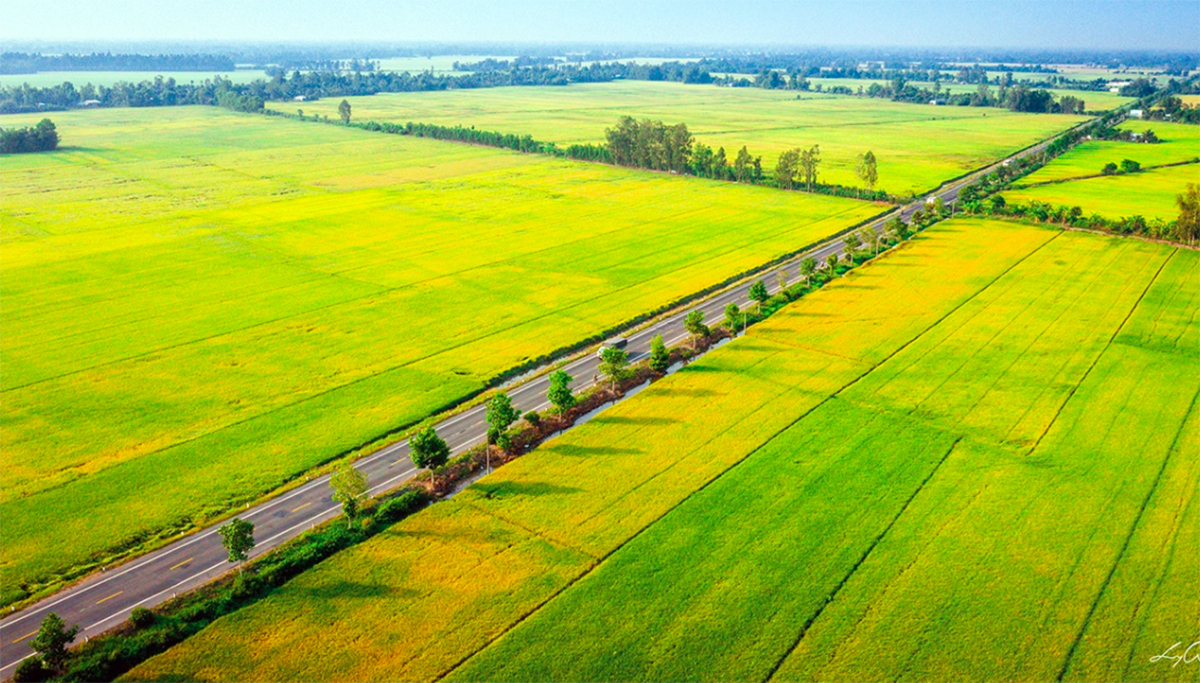 |
National Highway 61C in Can Tho City. Photo: Anh Lam |
National Highway 61C in Can Tho City. Photo: Anh Lam
According to Can Tho's Project Management Board for Transport and Agricultural Construction Investment, the National Highway 61C upgrade project spans 37 km. It will be a grade III delta road with 4 lanes, 23-25 m wide. The route passes through four districts and cities of Can Tho and former Hau Giang province, starting in Nhon Ai commune and ending in Hoa Luu commune. The total estimated investment is over 5,179 billion VND, of which over 3,556 billion VND is a loan from the Japanese government, with the remainder being counterpart funding.
The thu nhat phase of National Highway 61C, 47 km long and costing 3,400 billion VND, was put into operation in 2012. It is currently overloaded and deteriorated.
The Mekong Delta Climate Change Resilient Transport Network Development Project consists of two components.
Component 1 involves upgrading and expanding the remaining 10 km of National Highway 61C through Can Tho City. This will be a grade III road, 23 m wide, starting at the intersection with National Highway 1 in Cai Rang ward and ending at Trau Hoi bridge, bordering the former Hau Giang province.
Component 2 will construct a 25.5 km route from O Mon ward (Can Tho) to Giong Rieng commune (An Giang province), with 4 lanes and a width of 20.5 m. Once the O Mon bridge over the Hau River is built, this route will create a vertical axis connecting Dong Thap, Can Tho, and An Giang, linking three expressways: Hong Ngu - Tra Vinh, Chau Doc - Can Tho - Soc Trang, and Ha Tien - Rach Gia - Bac Lieu.
The total investment for both components is 8,780 billion VND, including over 5,700 billion VND in ODA loans from Japan and the remaining counterpart funding.
Vuong Quoc Nam, Vice Chairman of the CPC, said the projects play a crucial role in promoting socio-economic development, contributing to Can Tho's role as a center and driving force of the region.
An Binh





